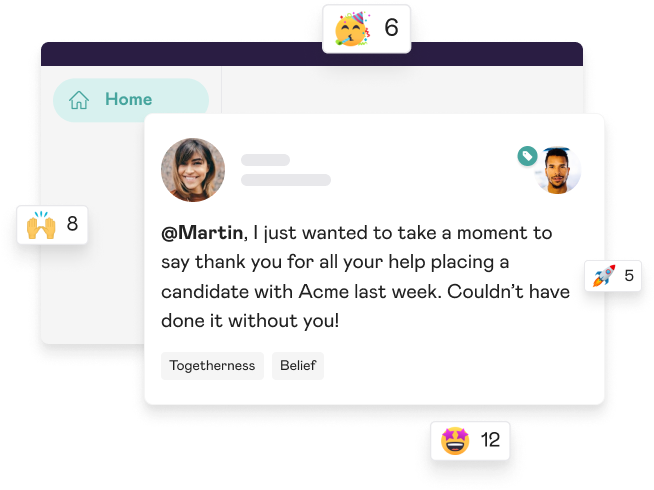Don’t waste your time with ineffective or uninspiring reward management strategies. Discover our top tips for creating a rewards strategy that works for your organisation.
What is reward management?
Reward management is a strategy for organizations to fairly and consistently reward all employees, through a planned and established rewards system. The CIPD defines a “reward” as covering all kinds of financial provisions made to employees, from cash pay to wider benefits package. It can also include non-pay benefits, like flexible working opportunities, or non-monetary goodies, like tickets for shows.
Why is performance and reward management important?
When you recognise and reward your employees for doing well, it makes them feel important and more excited about their job. Not only does this boost wellbeing and help drive motivation, it can also lead to increased productivity and success in your work environment.
When it’s done right, gifting can truly transform employee experience. Here are just a few of the ways it can make a big difference to your business.
Attracting talent
When you’re trying to stand out as a strong proposition for high-performing candidates, you need to go above and beyond basic compensation. While a high salary can attract attention, not all employees think of it as a top priority.
In the long term, financial rewards are only part of the story. A good work life balance attracts and retains motivated workers while ensuring a positive company culture.
Employee engagement and satisfaction
Making sure your employees feel motivated and engaged should always be a top priority (after all, Gallup found that organisations with high engagement levels enjoyed 23% higher profitability than those with low levels) and a reward strategy is a brilliant way to do it.
Retention
Developing a reward strategy or implementing a reward management system can also be a great incentive for employees to stay. Additional benefits create a more attractive total reward package, while the recognition and satisfaction that come from being appreciated can drive feelings of loyalty. In fact, recognition rich culture can enjoy 31% lower voluntary turnover rates.
Performance
It’s much easier to stay motivated to perform well when you know that someone is paying attention. Reward management puts a focus on employee achievements large and small, which gives them an incentive to shine.
Unlocking the Power of the Mind: How to Use Psychological Principles in Change Management
Join us as we speak with celebrated Transformational Coach, Author and Speaker, Rishita Jones. In this session, Rishita will delve into the fascinating world of workplace psychology and unveil the secrets to successfully implementing and sustaining organisational change.
What is a reward manager?
A reward manager is a line manager who actively engages with a reward strategy. Whether they’re the mastermind behind the scheme or they’re simply a cog in the machine, if they’re actively looking for ways to recognise and reward their employees, you can consider them a reward manager.
Step by step guide to creating a successful reward strategy
1. Audit what you already have. You likely have some sort of informal reward strategy in place. From monthly salaries to occasional rewards, there are lots of rewards you might not have considered yet. What about Christmas bonuses and long service awards? There’s plenty to explore.
2. Get feedback from employees. This is the perfect time to determine what your employees are really looking as rewards. People with a lot of out of work commitments may value extra days off more than cash rewards, for example.
3. Get buy-in from company leadership. A rewards program means more when it comes from the top. While material rewards are nice, they’re much more valuable when they come with validation and appreciation – especially from leaders.
4. Align your reward strategy with your company’s goals and values. Rewards are more effective when the criteria are firmly aligned with your core values. What does your team embody? Collaboration, fair-mindedness, and innovation are all fantastic places to start.
5. Design a reward system that is fair, transparent, and achievable. Your strategy should make sense to the people you share it with. Too many complicated rules and you’ll sow confusion and even dissatisfaction. Even worse, if the system isn’t fair, you’ll end up with unhappy employees in no time.
6. Communicate your reward strategy to employees clearly and regularly. There’s no point in having a reward strategy if your team isn’t aware of it. This is an opportunity to boost motivation and share successes; be prepared to shout about it.
7. Evaluate and review your reward strategy regularly. Good strategies are regularly assessed and reviewed. People’s priorities change over time and a successful strategy will be able to accommodate that. Likewise, as your organisation grows and evolves, you may need to reassess the complexity of your program.
“If your teacher, coach, or mentor believes you can do something, you’re more likely to do it.” – Gwen Moran, FastCompany.
Examples of effective reward management strategies
The type of reward strategy you choose should be aligned with the priorities of your employees and the values of your company. It’s also a great idea to create a strategy that incorporates several of the below, for a more well-rounded program. For example, the rewards you give for work anniversaries should be different to the ones you offer for outstanding achievement.
Monetary rewards
- Performance bonuses
- Commission for meeting targets
- Long service cash rewards
Non-monetary rewards
- Bonus time off
- Public praise and recognition
- Extra flexibility in working hours
Career development opportunities
- Coaching
- Mentoring
- Internal or external training
Wellbeing benefits
- Employee assistance programs
- Counselling
- Health insurance
- On-site fitness centres or subsidised gym memberships
- Peer-to-peer rewards
Another element that’s well worth adding to your rewards strategy is peer involvement. Peer-to-peer recognition gives employees the opportunity to bolster and celebrate each other. This not only improves interpersonal relationships, but can improve employee engagement too.
Top tips for creating a successful reward strategy
If possible, try to tailor your rewards to suit individual employees. For larger organisations, it may be difficult to know the needs and desires of every single team member. That’s where employee surveys come in handy.
Think about how achievable your rewards are and whether they stay in line with the way your company is operating. For example, changes to the overall economy are going to impact sales, no matter how hard your team is working.
Remember that some rewards can be casual and fun. Why not hand out vouchers for the coffee shop near your office? Have you tried sending chocolate bars by post? We recommend a simple shout out through an employee communication platform like ours at Mo.
Be sure to recognise and reward employees on a regular basis. Don’t wait until the end of the year to give employees a bonus or raise. Show them that you appreciate their hard work throughout the year with employee rewards.
Rewards strategy example
Here at Mo, we use our own reward and recognition software to manage our reward strategy. We have both a top-down and peer-to-peer approach, where each month every employee is given £10 to recognise another team member.
Managers are also given £250 per quarter to recognise people within their teams, with increments of £25, £50 and £75, perfect for when their team members go the extra mile.
Transform your culture with Mo

- Improve employee engagement scores
- Reduce employee churn
- Build a collaborative culture
Mo is a trusted, next-generation reward and recognition platform that makes it easy for busy managers to meaningfully recognise, engage and connect with their teams.
We equip managers with weekly suggestions to energise and connect with their people, help teams build habits of recognition into their day-to-day rhythms and go beyond simple rewards as a way to motivate staff. Join companies like SHL, OVO Energy and William Hill in delivering meaningful improvement on engagement results with Mo. Book a free demo today.






